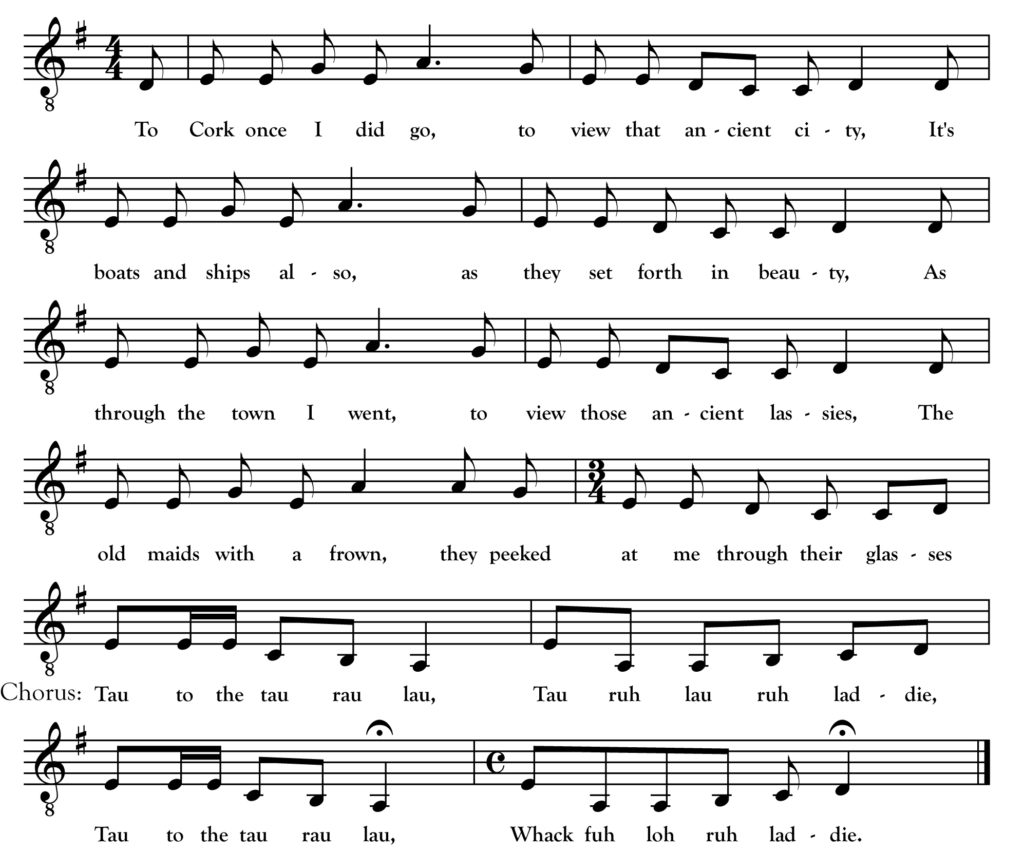Jessie Monroe

As I went a-walking one fine summer’s morning,
Down by Leinster market I happened to go,
I spied a young female that pleas-ed my fancy,
I’ll tell you about her as far as I know.
Cho: Right fol duh die ay, right fol duh die addee
For she is my darling wherever I go.
I stepp-ed up to her saying “where are you going?
Who is your father I feign would know?”
“My father’s a blacksmith in the village of Leinster,
And I am his daughter young Jessie Monroe.”
I said now “miss Jessie it’s I have fine buildings,
They’ll all be on your side as well you know,
If you will consent for to lie in my arrums,
A lamb of my bosom young Jessie Monroe.”
Oh she said “Now young Johnny go away with your flattering,
For you have a sweetheart wherever you go,
Your buildings are haunted likewise they’re enchanted,
There’s a handsomer young man for Jessie Monroe.”
Oh I said “now miss Jessie since you’ve been so saucy,
Once more to my lovely Maggie I’ll go,
She’s ne’er quite so bonnie, she’s better for Johnny,
So go your way wandering young Jessie Monroe.”
We have a nice lilty story song of unrequited love this month that, again, comes from the wonderful repertoire of Charles Finnemore of Bridgewater, Maine who was recorded by Helen Flanders. The 1941 recording of Finnemore singing “Jessie Monroe” is freely available to listen to online as part of the Helen Hartness Flanders Ballad Collection on archive.org.
Finnemore’s melody here resembles the air sung in Ireland for the song “Bold Doherty.” Jessie Monroe (Munroe or Munro in other transcriptions) was collected from a handful of other singers around the Canadian Maritimes. Other versions have the place name Leicester instead of Leinster.


